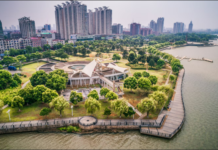Water damage can cause significant harm to your property, leading to costly repairs and loss of valuable possessions. Understanding the causes of water damage and taking preventive measures can save you from future headaches. In this article, we will explore the common causes of water damage in homes and provide practical tips on how to prevent water damage.
- Leaking Pipes and Plumbing Issues
One of the primary causes of water damage is leaking pipes. Over time, pipes can deteriorate due to age, wear and tear, or high-water pressure. Leaking pipes can cause water to seep into walls, ceilings, and floors, resulting in mold growth, wood rot, and even structural damage. Regular inspections of your plumbing system are essential to identify potential leaks early.
How to Prevent Water Damage:
To prevent water damage from leaking pipes, ensure that your plumbing system is regularly maintained. Hire a professional plumber to inspect your pipes and address any issues promptly. Consider upgrading old pipes to modern materials like PEX or copper to reduce the risk of leaks.
- Clogged Gutters
Gutters are designed to direct water away from your home’s foundation. However, when gutters become clogged with leaves, debris, or dirt, water can overflow and pool around the foundation. This excess water can seep into your home’s basement or lower levels, leading to significant water damage.
How to Prevent Water Damage:
Regularly clean your gutters and downspouts to ensure they are free of debris. You can also install gutter guards to prevent leaves and dirt from accumulating. Make sure water flows freely through the gutters and away from your home’s foundation to prevent water damage.
- Roof Leaks
Roof leaks are another common cause of water damage. Weather elements like rain, snow, and ice can take a toll on your roof over time, causing shingles to wear down or break. Once the protective layer of your roof is compromised, water can infiltrate your attic or upper floors, leading to water damage.
How to Prevent Water Damage:
Inspect your roof regularly for missing or damaged shingles, cracks, or signs of wear. If you notice any issues, schedule repairs immediately. Keeping your roof in good condition can prevent water from entering your home and causing costly water damage.
- Burst Water Heater
Water heaters are essential in every home, but when they fail, they can cause extensive water damage. A burst water heater can release large amounts of water, flooding nearby areas. Over time, water heaters can corrode, crack, or malfunction, leading to leaks or sudden bursts.
How to Prevent Water Damage:
To prevent water damage from a burst water heater, consider replacing old units that show signs of corrosion or wear. Regularly inspect the water heater for leaks and have it professionally serviced. Installing a drip tray beneath the unit can also help catch any potential leaks before they cause damage.
- Broken Appliances
Appliances like washing machines, dishwashers, and refrigerators are prone to leaks. Over time, hoses can crack or become loose, leading to water leakage. If these leaks go unnoticed, they can result in water damage to floors, walls, and surrounding areas.
How to Prevent Water Damage:
Check appliance hoses regularly for wear and tear. Ensure that connections are secure and that there are no signs of leaks. Additionally, consider using water leak detectors that alert you when a leak is detected, helping you prevent water damage early.
- Flooding Due to Heavy Rain or Storms
Heavy rain or storms can lead to flooding in homes, especially in areas prone to heavy rainfall. If your home is located in a flood zone or experiences significant rainfall, it’s crucial to take preventive measures to protect your property.
How to Prevent Water Damage:
Consider installing a sump pump in your basement to help divert water away from your home. Elevating electrical appliances and utilities above the flood level can also help minimize damage. Installing flood barriers around windows and doors can also offer protection during heavy storms.
- Poor Drainage Around Your Home
Improper drainage around your home can lead to water pooling near the foundation, increasing the risk of water damage. If water cannot flow away from the house properly, it can seep into the basement, crawl spaces, or walls, leading to mold growth and other water-related issues.
How to Prevent Water Damage:
Ensure that the soil around your home slopes away from the foundation. You can also install a French drain or improve your landscaping to encourage proper water drainage. These measures will help direct water away from your home and prevent water damage to your foundation.
Conclusion
Understanding the causes of water damage is the first step in protecting your home from expensive repairs and potential health risks. By addressing issues like leaking pipes, clogged gutters, roof leaks, and faulty appliances, you can significantly reduce the risk of water damage. Taking preventive measures will help you maintain the integrity of your home and prevent costly repairs in the future. For more information on preventing water damage in your home, visit waterdamageprosraleigh.com, where you can find expert advice and services to protect your property.



